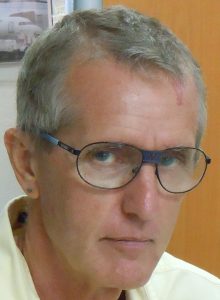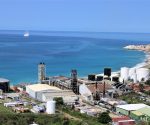A questionable future
 By Hilbert Haar
By Hilbert Haar
The story that I am hearing now is that suspended MP Theo Heyliger is done with politics. It tallies with a statement he made to me earlier last year when he wrote me a message saying that the 2018 election had been his last one.
His arrest on February 19 and his continued incarceration may have sped up the decision, though I have no way of knowing whether Heyliger is really going to disappear from the political arena.
If he does not reclaim his seat after his release, the coalition does not have much to worry about until the next elections. As we all know, those elections could happen in 2022, but they could also come earlier if opportunistic politicians send St. Maarten into another constitutional crisis.
And then what? For sure, without Heyliger, the political landscape will drastically change and the United Democrats will lose much of its luster. Who is going to lead that party to another resounding election result?
Without the charismatic Heyliger and without his financial backers, the UD is most likely going to be just another footnote in history.
In the February 26, 2018 elections, the United Democrats won 5,749 votes; more than one in five UD-voters cast their vote for Heyliger who ended up with 1,289 votes. The second highest vote getter is the UD’s second in command, MP Sarah Wescot-Williams, who became the party leader this week after Heyliger stepped down. Wescot-Williams was good for 566 votes in 2018 – a respectable score, for sure, but nowhere near Heyliger’s impressive result.
The question is of course why so many people voted for Heyliger. The 2010 election fraud court case revealed that Heyliger’s party (then the United People’s party, UP) was prepared to pay citizens for their vote. A never substantiated rumor has it that Heyliger poured $3 million of his own money into the UP war chest for the 2010 elections.
With Heyliger out of the way the field will in my opinion be wide open during the next elections for emerging political talents like Rolando Brison, Ardwell Irion and Jurendy Doran. It would not surprise me if one day Brison became St. Maarten’s next prime minister.
Over the past ten odd years we have seen the rise and fall of the Democratic Party – the political vehicle of Heyliger’s grandfather Claude Wathey – and the United People’s party. They merged into what looked like a powerhouse: the United Democrats; but the new party still did not have enough muscle to win an absolute majority in parliament.
When financial incentives disappear from the equation it remains to be seen what the electorate will do. How many voters went to the polls all those years because they received something in return? And how many won’t bother to vote if there is nothing to get from political parties?
Voter turnout in 2018 was 61.9 percent; of 22,559 eligible voters, more than 8,600 did not exercise their right to vote. In a worst case scenario, whereby all 2018 Heyliger-voters stay home during the next elections voter turnout will take a nosedive towards 56 percent.
As it is, the 2018 numbers are worrisome enough. The UD-SMCP coalition candidates won 6,930 votes. That is 30.7 percent of all eligible voters. In other words: the silent majority is governed by a minority: 69.3 percent of the electorate did not vote in favor of the current government.
Maybe the new generation of politicians will manage to increase people’s interest in participating in this so-called democratic process. If they fail like their predecessors, St. Maarten is heading towards a questionable future.

























